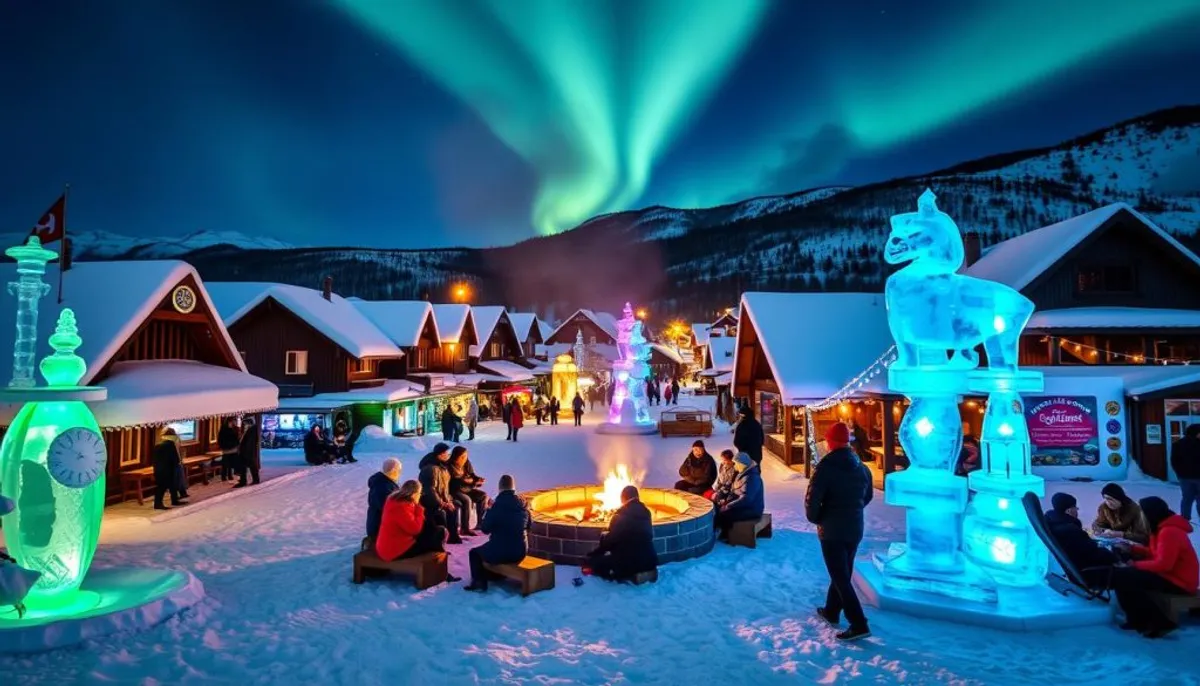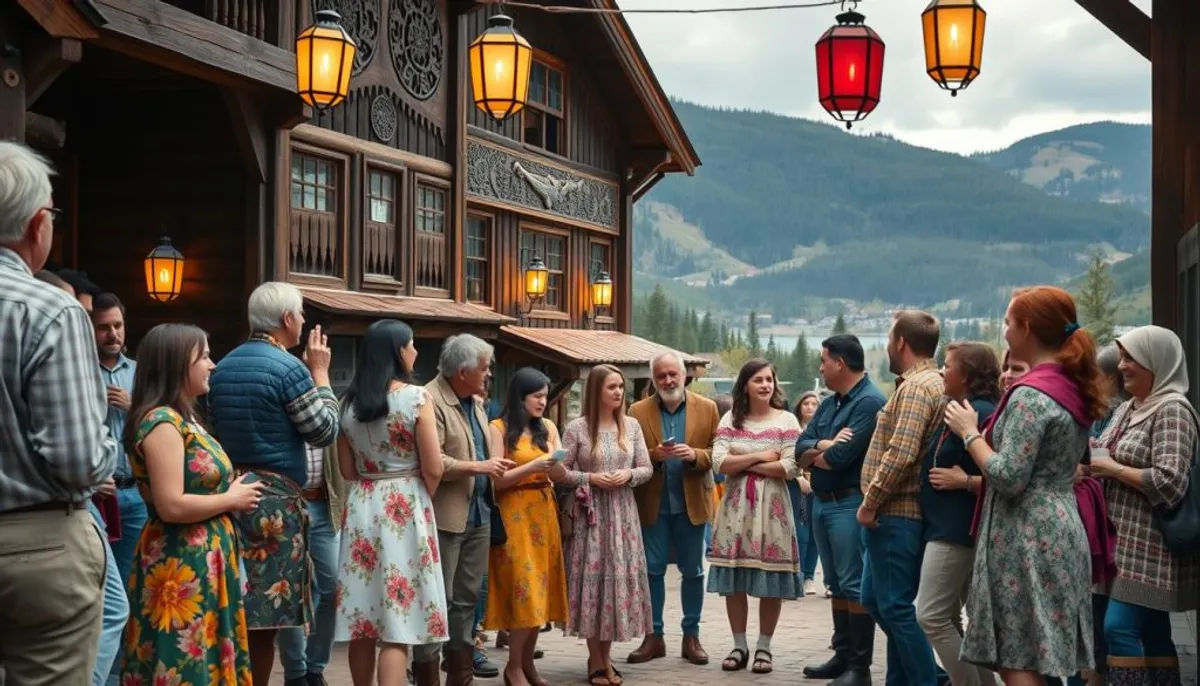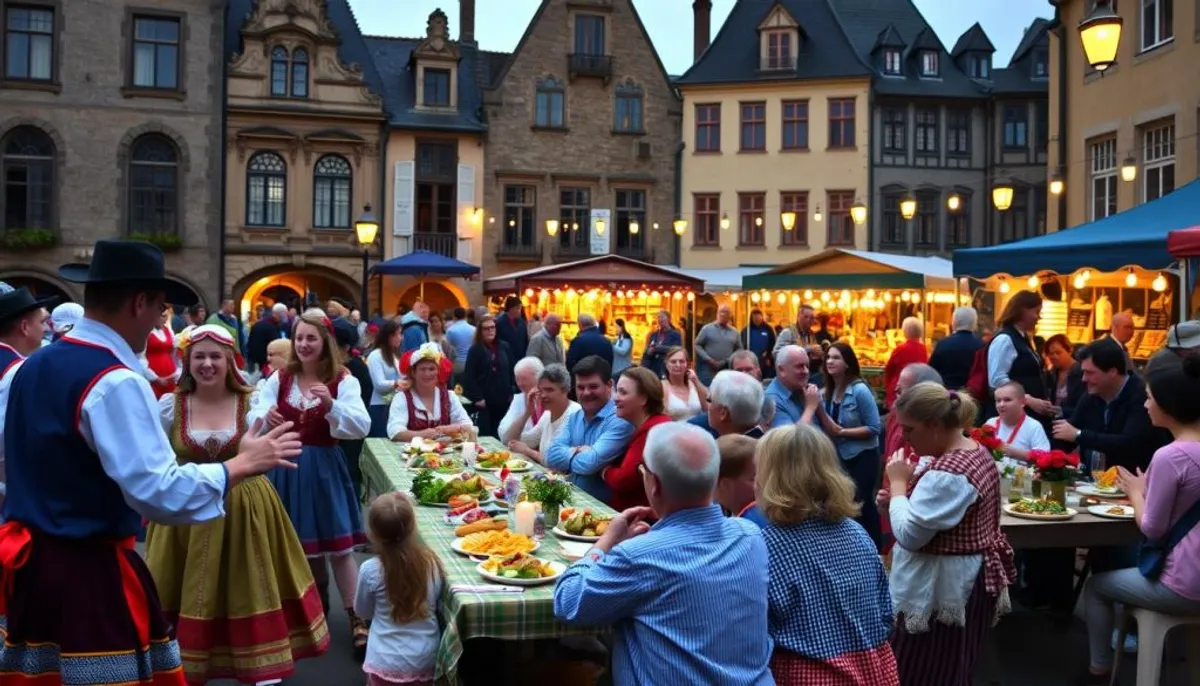The Quebec culture represents a rich heritage, the result of a fusion between French and North American influences. At the center of this identity is the French language, dominant with 81.8% of speakers in 2006. This linguistic diversity is reinforced by significant bilingualism, with 40.6% of residents mastering English.

The question of how to define Quebec culture is profound and complex. Its roots are embedded in history, marked by the arrival of the first European settlers in the 17th century. These settlers, mostly from Normandy, Île-de-France, Poitou, and Aunis, founded the Séminaire de Québec, the oldest institution of higher education in Canada.
The Quebec heritage is rich in traditions and festivities. The Day of the Patriots, celebrated on the Monday preceding May 25, is a shining example. These traditions, passed down from generation to generation, have been preserved thanks to writers like Philippe Aubert de Gaspé and François-Xavier Garneau in the 19th century, and they play an essential role in higher education of our culture.
The Quebec identity evolves, influenced by its history but oriented towards the future. Surveys on cultural practices, initiated in 1979, reveal a dynamic cultural life, comparable to that of France or the United States. The current challenge lies in preserving this cultural wealth while adapting it to modern demands.
How to define Quebec culture: between heritage and modernity
The Quebec culture is a fascinating blend of heritage and modernity. Its history has forged a unique identity, marked by its French roots while adapting to a constantly evolving world.

The historical roots of Quebec identity
The origins of Quebec identity trace back to New France. This colonial past has profoundly marked society. Before 1960, French vaudeville troupes regularly toured Canada and the United States, illustrating a dynamic Francophone culture.
The influence of French on culture
The French language plays a central role in Quebec's cultural identity. It has been essential for preserving Quebec's uniqueness. The adopted language laws have strengthened its status, especially in education and administration.
The distinct character of Quebec society
The Quiet Revolution of the 1960s marked a turning point towards modernity. This period saw the emergence of previously marginalized French Canadian elites becoming key players in cultural capital. Quebec art experienced a boom, reflecting this societal transformation.
The Quebec culture continues to evolve, combining traditions and innovations. The 1980 referendum sparked deep reflection on collective identity and institutions. This illustrates the complexity of modern Quebec society.
Festive and social traditions at the heart of identity
The Quebec traditions reflect the cultural identity of the province. They embody Quebec's folklore and gastronomy, establishing a link between the past and the present. Let's explore three emblematic celebrations that shape the festive spirit of Quebec.
Saint-Jean-Baptiste and the bonfires
Saint-Jean-Baptiste, Quebec's national holiday, is celebrated on June 24. This tradition dates back far in history. It brings Quebecers together around large bonfires, symbols of unity and cultural pride.
The corn roast: a unifying tradition
The corn roast is a popular summer celebration. Families and friends gather to husk and enjoy fresh corn. This tradition highlights Quebec gastronomy and strengthens social bonds.
The charivari and matrimonial traditions
The charivari was a custom related to weddings. Villagers would make noise in front of the newlyweds' house. Although less practiced today, this tradition illustrates the community spirit of Quebec folklore.
| Tradition | Date | Particularity |
|---|---|---|
| Saint-Jean-Baptiste | June 24 | Bonfires |
| Corn roast | Summer | Friendly meal |
| Charivari | After a wedding | Noisy celebration |

These festive and social traditions play a crucial role in preserving Quebec identity. They create moments of sharing and joy while transmitting the values and history of Quebec to new generations.
The living cultural heritage of Quebec
The Quebec heritage presents itself as a living, diverse, and rich treasure. The Quebec literature, in particular, plays a central role. It reflects the history and cultural identity of the province, thanks to authors who have left their indelible mark.
Quebec art, both visual and performative, demonstrates the creativity and originality of its creators. Painters, sculptors, and artisans contribute to the cultural edifice of Quebec. The music scene, for its part, is animated by folk traditions and contemporary talents, shining well beyond borders.
The Quebec cinema, recognized worldwide, plays a key role in disseminating local culture. It captures the essence of Quebec society and projects it onto the big screen, reaching an international audience.
The cultural convergence policy is essential for the preservation and enrichment of this unique heritage. It aims to transmit traditions while fostering artistic innovation.
| Heritage Element | Characteristics | Importance |
|---|---|---|
| Quebec Literature | Diversity of genres, emblematic authors | Shapes cultural identity |
| Quebec Art | Creativity, originality | Reflection of society |
| Music | From folk to contemporary artists | International reach |
| Quebec Cinema | Worldwide recognition | Dissemination of culture |
The living cultural heritage of Quebec is a precious asset that deserves to be celebrated and protected. It testifies to the vitality and richness of Quebec culture, contributing to its radiance in the world.
The evolution of values and Quebec society
The history of Quebec is marked by a profound transformation of its values and society. Quebec culture, rooted in its past, constantly adapts to the challenges of the present.
The Quiet Revolution and its impacts
The Quiet Revolution of the 1960s was a major turning point in Quebec identity. It led to a rapid modernization of society, with a clearer separation between church and state. This period saw the emergence of new values, such as gender equality and secularism.
Cultural integration in Quebec
Quebec has adopted a unique approach to cultural integration based on convergence. Unlike multiculturalism, this approach aims to preserve Quebec identity while welcoming diversity. Since 2020, immigration candidates must attest to their learning of democratic and Quebec values, highlighting the importance placed on integration.
The preservation of identity in a modern world
In the face of globalization, preserving Quebec identity remains a major challenge. The French language, a pillar of Quebec culture, is actively protected. The education system plays a crucial role in transmitting cultural identity. Young Quebecers emphasize values such as respect for others, tolerance, and non-violence, reflecting the ongoing evolution of Quebec society.
Conclusion
Quebec culture, with its unique heritage and constant evolution, is a fascinating phenomenon. It finds its strength in its French roots, complex history, and festive traditions. The French language, essential to Quebec identity, plays a crucial role in preserving this culture.
The Quebec traditions, such as Saint-Jean-Baptiste and the corn roast, illustrate the vitality of this culture. They strengthen social ties and perpetuate a sense of belonging. The living cultural heritage of Quebec, visible in literature, cinema, and the arts, helps shape an evolving identity.
In the face of the challenges of globalization, Quebec culture demonstrates a remarkable capacity for adaptation. The integration of new influences and openness to diversity enrich this unique heritage. Efforts to promote the French language and the history of Quebec, such as the bill on Quebec identity, show the willingness to preserve this culture while adapting it to modernity.
In short, Quebec culture is an example of resilience and creativity. It constantly reinvents itself while remaining true to its core values. It offers an inspiring model for identity preservation in a constantly changing world.
RelatedRelated articles


